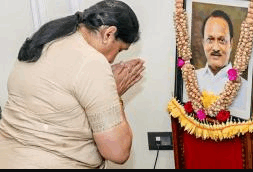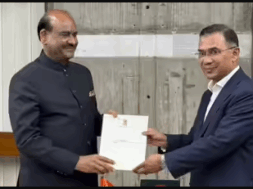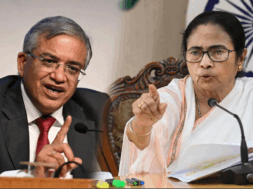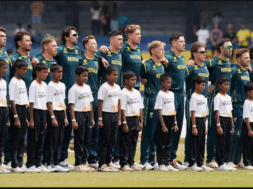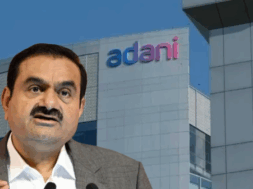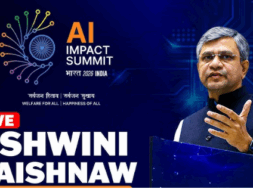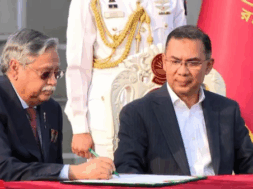
Manas Dasgupta
NEW DELHI, Mar 13: The Election Commission will “in time” make public details of electoral bonds redeemed by the all political parties as directed by the Supreme Court, the Chief Election Commissioner Rajiv Kumar said in Jammu on Wednesday.
“The Hon’ble Supreme Court had directed them (State Bank of India) to submit all the details by March 12. They have given it to us yesterday, in time. After I go back to Delhi, I will look at the data and would definitely disclose it in time,” Mr Kumar said.
The State Bank of India (SBI) also filed an affidavit in the Supreme Court on Wednesday, two days after a rap in the electoral bonds case, informing that it had submitted data on the bonds to the Election Commission of India (EC). The SBI has said in its compliance affidavit that it has submitted the data to the poll body in a pen drive. The data, it has said, is on two PDF files that are password-protected. It said the files were hand-delivered to the ECI in order to facilitate public disclosure of political funding.
The bank has also said in its affidavit that a total of 22,217 electoral bonds were issued between April 2019 and February 15, 2024, before the Supreme Court junked the scheme. Out of this, political parties redeemed 22,030 bonds. The remaining 187, the bank said, were redeemed and the money deposited in the Prime Minister’s national relief fund, according to rules.
“It has been our stand in the Supreme Court that the Election Commission is for transparency. Anything we do in the commission and anything our district magistrates do in the line of elections is based on two things—disclosure, disclosure and disclosure,” he said, adding that the “voter has every right to know as to what we are doing.”
The SBI in its affidavit said from April 1, 2019 to April 11 the same month, 3,346 bonds were purchased and 1,609 were redeemed by parties. Between April 12, 2019, and February 15, 2024, donors bought 18,871 bonds and 20,421 were redeemed by parties, the SBI affidavit said. Though the Supreme Court had sought information only from April 12, 2019, the bank said the selling and redeeming of electoral bonds had started from April 1.
The ECI has time till March 15 to compile and publish the information got from the bank on its official website. The bank said it has shared information with the ECI about the dates of purchase of electoral bonds, the names of purchasers and denomination of the bonds. Similarly, the dates of encashment of the bonds, names of political parties which received the contributions and denomination of the bonds encashed were also provided to the top poll body.
The bank has shown impressive alacrity to divulge the information which was readily available with it. A five-judge Bench headed by Chief Justice of India D.Y. Chandrachud had put the bank on notice on March 11, threatening to initiate contempt action if it did not disclose the required information in the next 24 hours.
The Supreme Court last month struck down the electoral bond scheme, which allowed anonymous funding to political parties, and ordered SBI to immediately stop issuing electoral bonds. It asked the SBI to supply all details of the electoral bonds to the Election Commission by March 12, with a direction to the latter to make these public by March 15.
The Supreme Court later rejected a plea filed by the public sector bank seeking more time for submitting the details to the Election Commission.
The SBI was the sole authorised financial institution to issue electoral bonds. Under the now-scrapped electoral bonds scheme, donors could purchase bonds to donate to parties of their choice. But the parties had to redeem the bonds within 15 days, failing which the amount would go to the Prime Minister’s relief fund.
In its landmark February 15 verdict, the Supreme Court held that the electoral bonds scheme was “unconstitutional” and that it “violates the right to information of citizens, about possible quid pro quo” between donors and political parties. SBI had been ordered to stop issuing the bonds immediately and submit the details of the donations to the EC, which would make them public.
The court had set a deadline of March 6 for SBI to submit the data, and the EC had been asked to make it public by March 13. But the bank requested the court for an extension till June 30. This was challenged by the Association for Democratic Reforms, which was among the petitioners who had opposed the electoral bonds scheme.
On Monday, the court turned down the SBI’s request and said it must share the details by Tuesday. The EC has now been asked to upload the data on its website by 5 pm on Friday.
Appearing for SBI, Senior Advocate Harish Salve had said the bank had followed an SOP to store information about the electoral bonds scheme outside the core banking system. “I have full details on who purchased the bond and I have full details from where the money came from and which political party tendered how much. I have to also now put the name of purchasers. The names have to be collated, cross-checked with the bond numbers.”
To this, the court replied that it has not asked the bank to match the donors with the amount received by political parties. “We have not asked you to do the matching exercise. So to seek time saying that a matching exercise is to be done is not warranted, we have not directed you to do that,” Chief Justice DY Chandrachud said.


